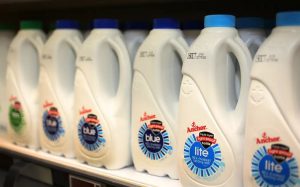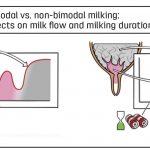
A familiar battle reignites as new legislation seeks to restrict the use of dairy terms.
The long-standing debate over plant-based labeling is back in the spotlight with the reintroduction of the Dairy Pride Act. This legislative effort aims to compel the Food and Drug Administration (FDA) to enforce existing regulations and prohibit plant-based beverage manufacturers from using traditional dairy terms like “milk.” For the dairy industry, this isn’t just about semantics; it’s a critical fight to protect the integrity of dairy products and ensure consumers aren’t misled about the nutritional differences between the two categories.
The core of the issue lies in a matter of definition and fair labeling. Proponents of the Act argue that the use of terms such as “almond milk” or “oat milk” is a direct violation of FDA standards of identity, which reserve the term “milk” exclusively for a product derived from a lactating animal. They emphasize that plant-based drinks lack the essential nutrients found in dairy milk, and that this mislabeling can have serious implications for consumer nutrition and public health. This perspective highlights the need for clear, accurate labeling across the food and beverage landscape.
From the perspective of the dairy industry, the issue is also economic. The rapid growth of plant-based alternatives has created stiff competition, and the use of dairy terminology is seen as a way for these products to unfairly capitalize on the established reputation and nutritional value of milk. By ensuring a level playing field, the Dairy Pride Act seeks to protect the livelihood of dairy farmers and the stability of the entire dairy supply chain, from milk production to retail.
However, the debate isn’t without its critics. Opponents of the Act, including many plant-based food companies and their supporters, argue that consumers are not confused by the current labels. They contend that terms like “soy milk” have been in use for decades and that the product packaging and branding clearly distinguish them from conventional dairy products. The argument also touches on free speech and consumer choice, suggesting that a ban on these terms would be an overreach of regulatory power.
Ultimately, the reintroduction of the Dairy Pride Act forces the FDA to address a complex issue that has remained largely unresolved. The outcome will not only determine the future of product labeling in the U.S. but also set a precedent for how traditional food categories are defined in an evolving market. The final decision will impact dairy producers, plant-based manufacturers, and consumers alike, shaping the future of the food industry for years to come.
Source: For additional details on the proposed legislation and its context, consult the original article on Dairy Reporter.
You can now read the most important #news on #eDairyNews #Whatsapp channels!!!
🇺🇸 eDairy News INGLÊS: https://whatsapp.com/channel/0029VaKsjzGDTkJyIN6hcP1K

























